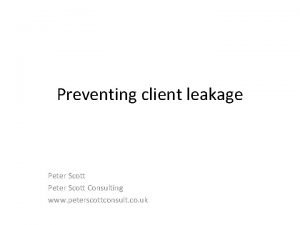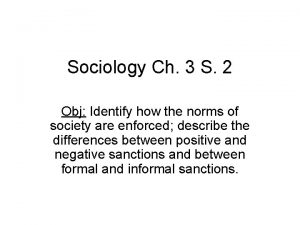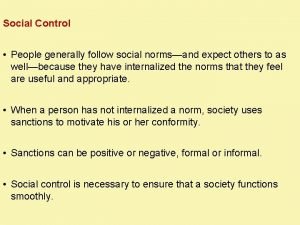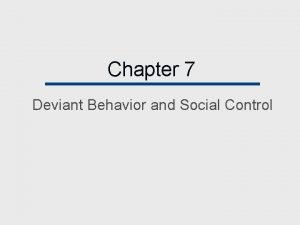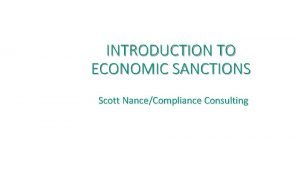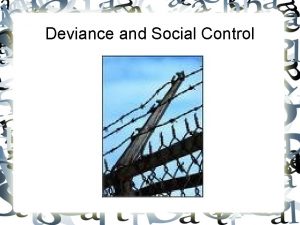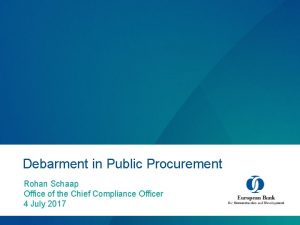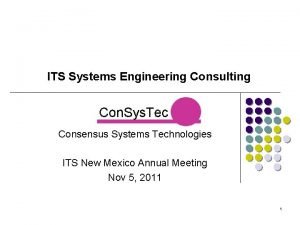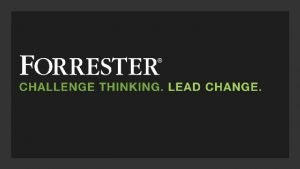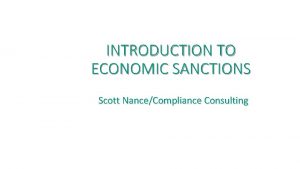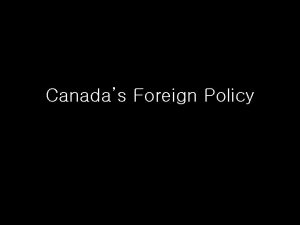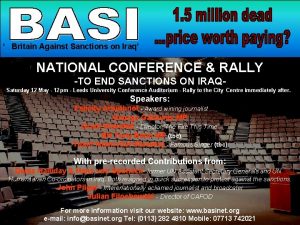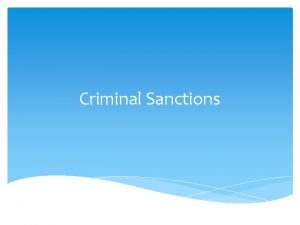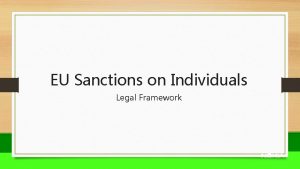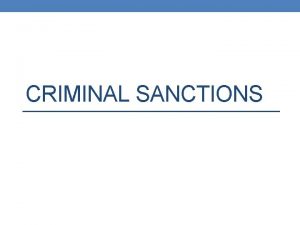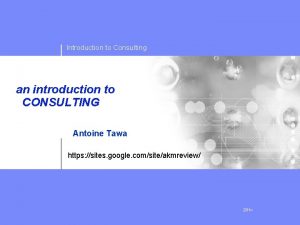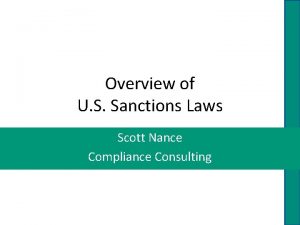INTRODUCTION TO ECONOMIC SANCTIONS Scott NanceCompliance Consulting Economic



















- Slides: 19

INTRODUCTION TO ECONOMIC SANCTIONS Scott Nance/Compliance Consulting

Economic Sanctions • Economic sanctions are laws that restrict or prohibit dealings with countries, companies, or individuals • Many countries and international organizations impose economic sanctions, including • United Nations • United States • European Union • Economic sanctions typically target • • Terrorists Narcotics dealers Government officials suppressing democracy in their home country The spread of weapons of mass destruction 2

U. N. Sanctions • The United Nations has frequently imposed economic sanctions against countries, groups, and individuals to • Preserve peace • Prevent nuclear proliferation • Combat terrorism • Examples of UN sanctions include • • Iran Somalia North Korea Al Qaida • To be effective, UN sanctions must be imposed by individual countries • Many countries, including the United States the EU, and Switzerland, generally implement UN sanction programs fairly quickly 3

U. S. Economic Sanctions • The United States (and other countries) have two types of economic sanctions, country-based sanctions and list-based sanctions • Country-based sanctions restrict or prohibit transactions involving goods, services, companies, or individuals of certain countries • The United States restricts or prohibits transactions with a number of different countries • The precise nature of the sanctions varies by country 4

Countries Subject to U. S. Sanctions • The United States prohibits “U. S. persons” from engaging in practically any transactions involving • • Cuba Iran Syria North Korea • More limited sanctions apply to certain entities and persons in Russia and Ukraine • Burma/Myanmar and Sudan were previously subject to extensive sanctions, but these have been largely removed 5

List-Based Sanctions • List-based sanctions prohibit transactions with specified individuals, companies, and other organizations • The United States prohibits any transactions with anyone on its list of “Specially Designated Nationals, ” (“SDNs”), including specified • SDNs include individuals, companies, associations (including some “charities”), and even ships • Examples of SDNs include • Osama Bin Laden • Hezbollah • President Aleksandr Lukashenka of Belarus • Many of these same persons and organizations are on the sanctions lists of the United Nations, the European Union, and a number of other countries 6

Why We Must Comply • Violating U. S. sanctions laws can expose a company and its employees to • • Criminal penalties, including imprisonment Civil penalties, including fines Loss of export privileges Increased scrutiny of future actions from the U. S. government • Violations can cause serious reputational damage 7

Who Is Covered by U. S. Sanctions? • U. S. sanctions apply to “U. S. persons”, which include • U. S. citizens and permanent residents, wherever they are located • All individuals physically present in the United States, regardless of their citizenship • Companies, partnerships, associations, etc. organized under the laws of any U. S. state • Branches of U. S. companies overseas 8

Subsidiaries • Subsidiaries of U. S. companies incorporated under the laws of a foreign country are not U. S. persons • However, the Cuba sanctions also apply to foreign subsidiaries of U. S. companies • Independent foreign subsidiaries may be able to engage in transactions involving Iran that their U. S. parent cannot • Sanctions restrictions still apply to U. S. citizens working for the subsidiaries • U. S. citizens can provide overall management to foreign subsidiaries but cannot participate directly in transactions involving sanctioned countries 9

Cuba and Iran: Prohibited Parties • The governments of these countries • Companies controlled by these governments, wherever located • Companies incorporated in these countries • Persons physically located in these countries, regardless of citizenship • Cuban nationals, wherever located 10

Cuba, Iran and Sudan: Prohibited Transactions • Exports from the United States, including exports from third countries of products manufactured in the United States • Imports into the United States • Purchases of services provided by sanctioned parties, including transportation and insurance • Financial transactions, including loans and investments • Facilitating a prohibited transaction 11

Syria • The United States prohibits exports of U. S. goods or services to Syria without a license • There is a general exception for agricultural products and medicine • Because Syria’s largest bank has been identified as a prime center of money laundering, many other transactions with Syria are effectively prohibited • Imports of goods and services into the United States from Syria are allowed • But imports of petroleum products from Syria are prohibited 12

North Korea • Most U. S. exports to North Korea require a license from the U. S. Department of Commerce • Exports of food do not require a license, but as a practical matter, even these exports are very difficult • Imports from North Korea require prior authorization by the U. S. government 13

General Exceptions to Sanctions • Informational materials (books, music, movies, etc. ) • Travel (except for Cuba) • Personal remittances to family members • Humanitarian relief • U. S. products incorporated into products manufactured in other countries before being re-exported, so long as U. S. content is less than 10 percent of the total value 14

Licenses • The U. S. government can issue a license to permit a transaction that would otherwise be prohibited • The license must be obtained before the transaction begins • The license specifies exactly what transaction is permitted • A license can permit continuing transactions for up to one year • Lately, it has been taking Kraft Foods around six months to obtain even routine licenses for food exports to Iran and Sudan 15

Sanctions Against Individuals • The United States has designated hundreds of individuals, companies, groups, and even vessels as “Specially Designated Nationals” (“SDNs”) • The United Nations and many countries have similar lists, containing many of the same names • Categories of SDNs include • Terrorists • Drug traffickers • Persons and entities trafficking in weapons of mass destruction • Government officials of countries suppressing democracy (Belarus, Zimbabwe) 16

Sanctions Against Individuals • The U. S. government does not generally grant licenses for transactions with SDNs • Occasionally it will grant very limited licenses for such transactions • If a U. S. person gains control of any property belonging to an SDN, the U. S. person must • “Block” (i. e. , freeze) the property by, for example, placing the funds in a special account which the SDN cannot access • Inform the U. S. government within 10 days • Maintain control over the property until the government tells them what to do with it 17

EU Sanctions • Like the United States, the EU maintains a list of “restricted persons” with whom EU citizens and companies cannot do business • As with the U. S. sanctions, EU persons must freeze funds or other property belonging to restricted persons if they come into possession of them • The EU restricts or prohibits certain types of transactions with a number of countries, including Iran, North Korea, and Russia • EU country sanctions are generally less restrictive than the U. S. sanctions 18

Screening for Sanctions Concerns • To identify parties to a transaction who might be SDNs or connected to a sanctioned country, it is necessary to have in place a process to screen current customer and vendor files against the SDN list • Parties that must be reviewed include • • • Purchasers Sellers Financial institutions (including banks) Insurers and reinsurers Shippers and freight forwarders • Depending on whether the transaction involves a sanctioned person or country, you may be required to either • Freeze the property • Reject the transaction • Report the transaction to the appropriate authorities 19
 Peter scott consulting
Peter scott consulting Not everyone internalizes all of society's norms
Not everyone internalizes all of society's norms Formal negative sanctions examples
Formal negative sanctions examples Social control in sociology
Social control in sociology Xenosentrism
Xenosentrism Types of intermediate sanctions criminal justice
Types of intermediate sanctions criminal justice Merton’s typology
Merton’s typology Sanctions examples
Sanctions examples What are sanctions
What are sanctions Types of social control
Types of social control Sanctions training slides
Sanctions training slides Mdb sanctions
Mdb sanctions Winmentor service
Winmentor service Medconsulting
Medconsulting Economic growth vs economic development
Economic growth vs economic development What is economic growth and development
What is economic growth and development Economic systems lesson 2 our economic choices
Economic systems lesson 2 our economic choices What is yamm
What is yamm Patch plus consulting
Patch plus consulting Marc cecere
Marc cecere
